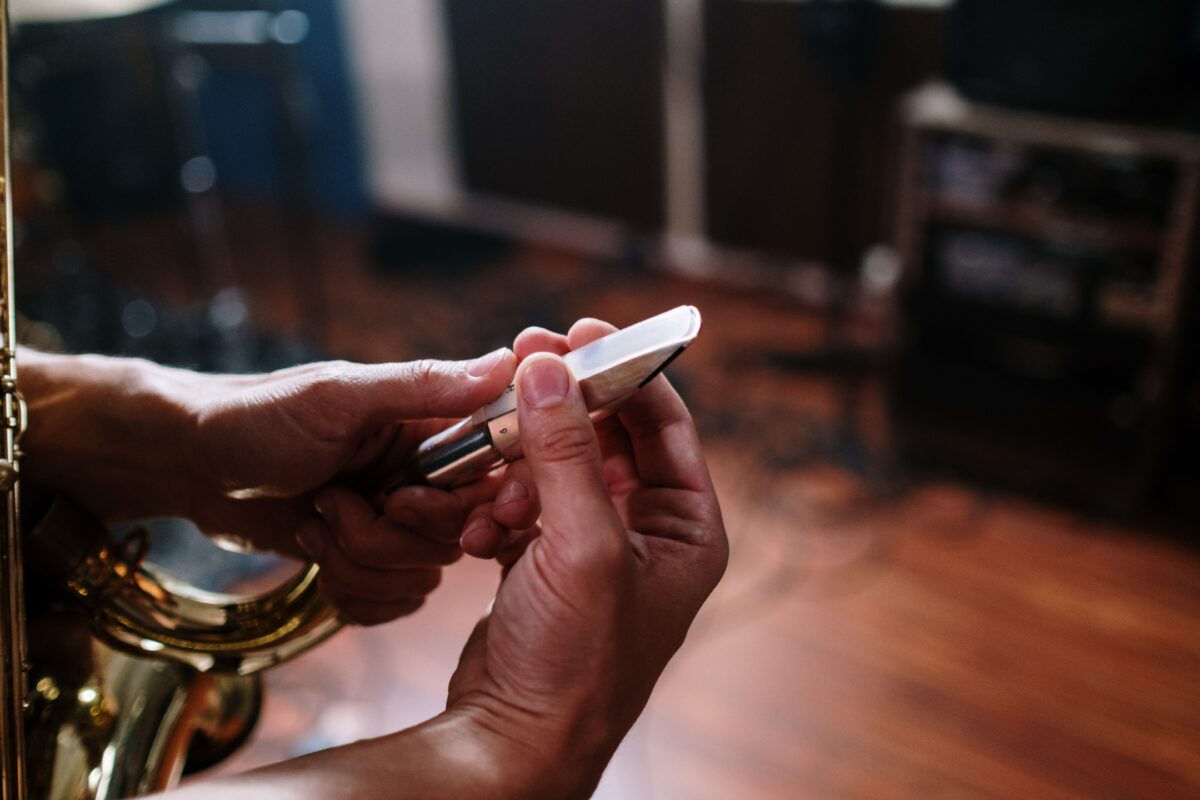
Music is a universal language that speaks to the soul, and for many, playing a musical instrument is a deeply personal and rewarding experience. To ensure that your instrument continues to produce beautiful melodies for years to come, it’s crucial to invest time and effort into proper maintenance. What better time to show your musical instrument some extra love than in February? In this guide, we’ll explore practical tips for taking care of your musical instrument.
Taking Care of Your Musical Instrument
Regular Inspections:
Performing routine inspections can help you catch potential issues before they escalate. Check for loose screws, cracked joints, missing or torn cork, missing or worn pads, keys not sealing properly, or any signs of wear and tear. For string instruments, examine the strings for fraying or corrosion. For brass instruments, check for any broken or loose solder points. If you notice any problems, address them promptly to prevent further damage.
Proper Storage:
Where and how you store your instrument can significantly impact its longevity. Exposure to extreme temperatures, humidity, or direct sunlight can cause damage over time. Invest in a high-quality case or instrument stand that provides adequate protection against environmental factors. Do not store music or pad swabs directly in the instrument compartment, as this can add pressure and cause bending or breaking of parts. For string instruments, loosening the strings slightly during storage can help relieve tension and prevent warping.
Regular Cleaning:
One of the most basic yet essential steps in instrument care is regular cleaning. Dust, sweat, and oils from your hands can accumulate on the surface, affecting both the instrument’s appearance and sound quality. Use a soft, lint-free cloth to wipe down your instrument after each use, paying attention to areas that come into direct contact with your skin. For instruments with intricate details, such as keys or frets, a small brush can help remove debris. Strings play a crucial role in the overall sound quality of your instrument. Regularly clean your strings with a soft cloth to remove oils and debris. For string instruments like guitars or violins, consider using a string lubricant to reduce friction and prolong string life. When changing strings, follow the manufacturer’s recommendations for your specific instrument, and make sure to stretch new strings properly to maintain tuning stability.
Humidity Control:
Wooden instruments, in particular, are sensitive to changes in humidity. Extreme moisture or dryness can lead to cracks, warping, and changes in tone. Consider using a humidifier or dehumidifier in the room where you store your instrument, depending on the climate of your location. A hygrometer can help you monitor humidity levels, ensuring they stay within the recommended range for your specific instrument.
Professional Maintenance:
While routine care is essential, there are aspects of instrument maintenance best left to professionals. Schedule regular check-ups with a technician to assess and address more intricate issues. Professional maintenance ensures that your instrument receives expert care, extending its lifespan and preserving its optimal performance. It can also assure that any problems are fixed before they become career ending issues. CIOMIT makes this easy by offering free estimates for repair services, and our technicians will talk you through everything, so you know exactly what to expect. Typically repairs take an average turnaround time of one week, so you won’t be left without your instrument for long.
Additional Tips
Brass
For brass instruments, regularly clean the mouthpiece with warm, soapy water and a specialized brush to prevent the buildup of bacteria and debris. Avoid excessive force when assembling and disassembling the various components to prevent damage. Remove and replace grease and oils on the instrument regularly. Additionally, you should move every slide every time you use your instrument to prevent surprise corrosion, buildup and frozen slides.
Strings
For string instruments, keep your instrument in a stable environment with moderate temperature and humidity levels to prevent warping or cracking. When handling your strings, make sure your hands are clean and free from oils that can damage the strings over time. Be sure to loosen the tension on the bow to help the hair last longer and prevent warping of the stick. Additionally, it’s essential to tune your instrument regularly to avoid excessive tension on the strings and the instrument’s structure.
Woodwinds
For woodwind instruments; when assembling and disassembling the instrument, avoiding excessive force that could lead to damage or misalignment. For flute; use a cleaning rod with a soft swab, such as cheese cloth, to clean the inside of the instrument. On all other woodwinds use a weighted cloth designed for your instrument. Make sure to store your swabs outside of the case to prevent mold and mildew. Keep the keys and mechanisms free of debris and hair to prevent friction and ensure smooth movement.
Maintenance is a Must
Taking care of your musical instrument is a commitment to preserving not only its physical condition but also the rich melodies it produces. By incorporating these maintenance practices into your routine, you can enjoy playing your instrument for years to come, ensuring that the harmonies you create continue to resonate with the same clarity and beauty as the day you first picked it up. Schedule an appointment with one of our techs to have your instrument looked over and cleaned by a professional. You will be amazed at the difference it makes! Hop over to our Repair Page to get an idea of what to expect. CIOMIT is open for walk-in service, or you can call or email us with any questions!